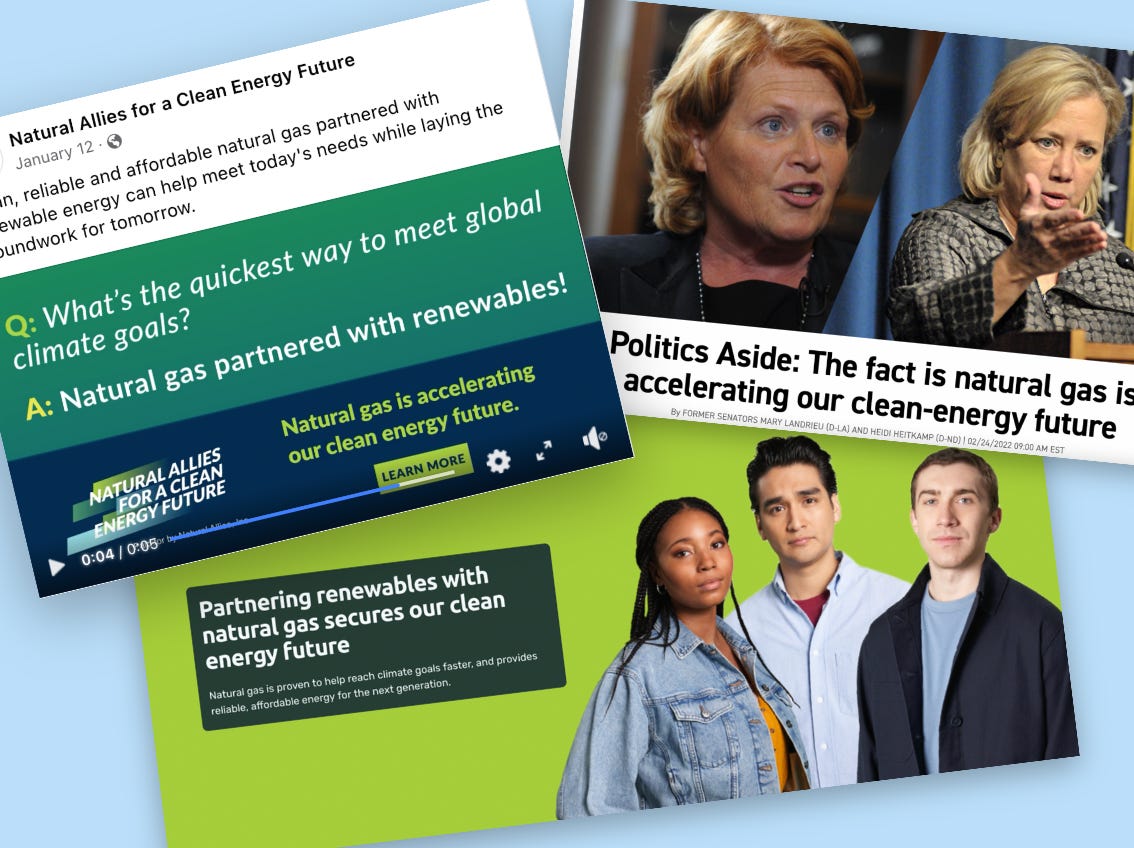These natural gas ads are full of hot air
Gas companies say their clean energy claims are backed by science. They fail to mention the science is fossil fuel funded.

If you’ve read Politico, Axios, or E&E News lately, you may have come across ads claiming that natural gas is an effective solution to the climate crisis.
One ad, which appeared last week in an E&E art…



